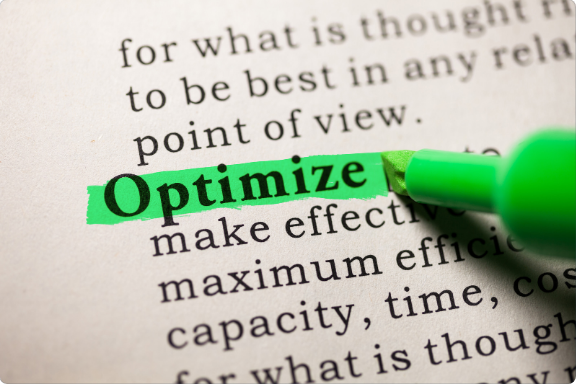
Nutritional considerations for cirrhosis can be the difference between debilitating cirrhosis, versus a well managed lifestyle despite your diagnosis. Your liver, a resilient and multifunctional organ, plays a pivotal role in maintaining overall well-being. Optimizing liver health is not just a medical necessity; it’s a holistic journey encompassing lifestyle, nutrition, and mindful choices. In this comprehensive guide, we’ll delve into the intricacies of liver health, exploring how simple yet intentional lifestyle adjustments can have a profound impact on its function. From appearance to emotional well-being and dietary choices, we’ll unravel the secrets to looking, feeling, and eating to prolong the progression of liver damage.
Understanding Liver Health:
Before we embark on this transformative journey, let’s understand the liver’s indispensable role in the body. As the largest internal organ, it performs functions crucial for survival, including detoxification, metabolism, and the production of essential proteins. A healthy liver is the cornerstone of vitality, impacting not only physical health but also emotional and mental well-being, this is why this article empasizes the nutritional condidersations for cirrhosis.
The External Reflection: Looking Good, Feeling Great:
- Skin Health:
- The skin often serves as a visible indicator of internal health. Optimizing liver function contributes to clearer skin, minimizing issues like jaundice and skin discoloration associated with liver disorders.
- Weight Management:
- A well-functioning liver aids in metabolizing fats efficiently. By maintaining a healthy weight through balanced nutrition and regular exercise, you not only optimize liver health but also promote a positive body image.
- Energy Levels:
- Liver health is intricately linked to energy levels. A liver optimized through proper nutrition and hydration ensures the efficient release of energy, promoting vitality and reducing feelings of fatigue.
Embracing a Liver-Friendly Diet:
- Nutrient-Rich Choices:
- Prioritize a diet rich in fruits, vegetables, whole grains, and lean proteins. These foods provide essential vitamins, minerals, and antioxidants that support liver function and overall health.
- Hydration:
- Water is the elixir of life, and it plays a crucial role in liver health. Staying well-hydrated helps the liver flush out toxins and aids in digestion, promoting optimal function. This is an oftern overlooked component when taking into account the Nutritional Considerations for cirrhosis.
- Moderate Alcohol Consumption:
- Excessive alcohol can wreak havoc on the liver. If consumed, it should be done in moderation. Consider alternatives like mocktails or non-alcoholic beverages to support liver health. If you have already been diagnosed with liver disease, complete abstinence should be the goal.
Strategic Lifestyle Adjustments:
- Regular Exercise:
- Physical activity isn’t just about weight management; it also supports liver health. Incorporate a mix of aerobic exercises and strength training to boost metabolism and enhance overall well-being.
- Adequate Sleep:
- Quality sleep is a powerful ally for liver health. Aim for 7-8 hours of restful sleep each night to promote cellular repair and regeneration within the liver.
- Stress Management:
- Chronic stress can take a toll on the liver. Embrace stress-reducing practices such as mindfulness, meditation, or yoga to foster emotional well-being and support liver health.
Emotional Wellness: Nurturing the Mind-Body Connection:
- Mental Health Awareness:
- Recognizing the impact of liver health on mental well-being is crucial. Conditions like fatty liver disease have been linked to mood disorders, emphasizing the interconnectedness of physical and emotional health.
- Seeking Support:
- Living with liver conditions can be emotionally challenging. Don’t hesitate to seek support from healthcare professionals, support groups, or mental health experts to navigate these complexities.
Prolonging Liver Health: A Lifestyle Commitment:
Optimizing liver health is not a one-time effort but a commitment to a holistic lifestyle. Regular medical check-ups, adherence to prescribed medications, and open communication with healthcare professionals are pivotal in monitoring and maintaining liver health. In time, with the steps above addressed, you will begin to start understanding your liver health, and hopefully make positive stride towards your short, and long-term goals.
Unique Insights into Meeting Nutritional Needs in Cirrhosis:
The labyrinth of challenges posed by cirrhosis mandates a customized approach to nutritional well-being. Acknowledging the intricacies of impaired digestion, nutrient absorption, and metabolism, we underscore the exclusive importance of meeting nutritional needs for individuals traversing the cirrhosis landscape. A nuanced understanding of the role each nutrient plays becomes indispensable for a truly holistic approach to health.
Macronutrients and Micronutrients: A Bespoke Perspective:
In the intricate dance of nutritional elements, we unravel the distinctive roles of macronutrients and micronutrients tailored explicitly for cirrhosis management. Venturing beyond the ordinary, we explore the multifaceted impact of carbohydrates, proteins, and fats, and delve into the micronutrient realm, illuminating the significance of vitamins and minerals in supporting liver health and overall well-being.
Guidelines Crafted for Individual Needs:
In the realm of caloric intake, protein consumption, and nutrient-rich foods, we weave a tapestry of guidelines carefully crafted for individual needs. This bespoke approach considers variables like age, gender, weight, and activity levels, ensuring a personalized nutritional compass that navigates the unique landscape of each individual’s cirrhosis journey.
Navigating Challenges: A Distinctive Perspective:
Amidst the challenges of malnutrition and weight loss, we carve a distinctive path, acknowledging their profound impact on disease progression and treatment outcomes. In this narrative, we underscore the intricate dance between inadequate nutrition and weakened immunity, shining a light on the pivotal role nutrition plays in shaping the cirrhosis narrative.
Innovative Strategies for Enhanced Caloric Intake:
Championing inventive strategies, we spotlight the importance of frequent small meals, nutrient-dense foods, and oral nutritional supplements. In a landscape where every calorie counts, we unveil a repertoire of strategies designed to boost caloric intake without compromising the delicate balance of liver health. For more information on meal planning, the importance of protein and overall diet, go to the following page for more detailed information on the subject. http://liversoflife.com/?page_id=2
The Exclusive Role of a Registered Dietitian:
Amidst the multitude of choices, we champion the exclusive role of a registered dietitian or nutritionist. These unsung heroes offer personalized meal plans, unravel dietary restrictions, and provide ongoing support and education, underscoring the bespoke nature of nutritional care for individuals with cirrhosis.
Navigating Sodium Restriction and Fluid Management:
In the realm of sodium restriction, we explore a distinct narrative that goes beyond the ordinary. Practical tips for reducing sodium intake become a personalized journey, involving food label literacy, a departure from processed foods, and a celebration of herbs and spices for flavoring. In fluid management, we unveil the delicate balance between monitoring intake and output, emphasizing the bespoke nature of managing electrolyte levels.
This unique narrative on nurturing liver health for individuals with cirrhosis transcends the commonplace, weaving together an intricate tapestry that considers the individual’s journey, challenges, and aspirations. By embracing a one-of-a-kind approach to nutrition, individuals with cirrhosis can not only navigate their health journey with confidence but also redefine the narrative, transforming nutritional care into a bespoke experience that mirrors their uniqueness.

